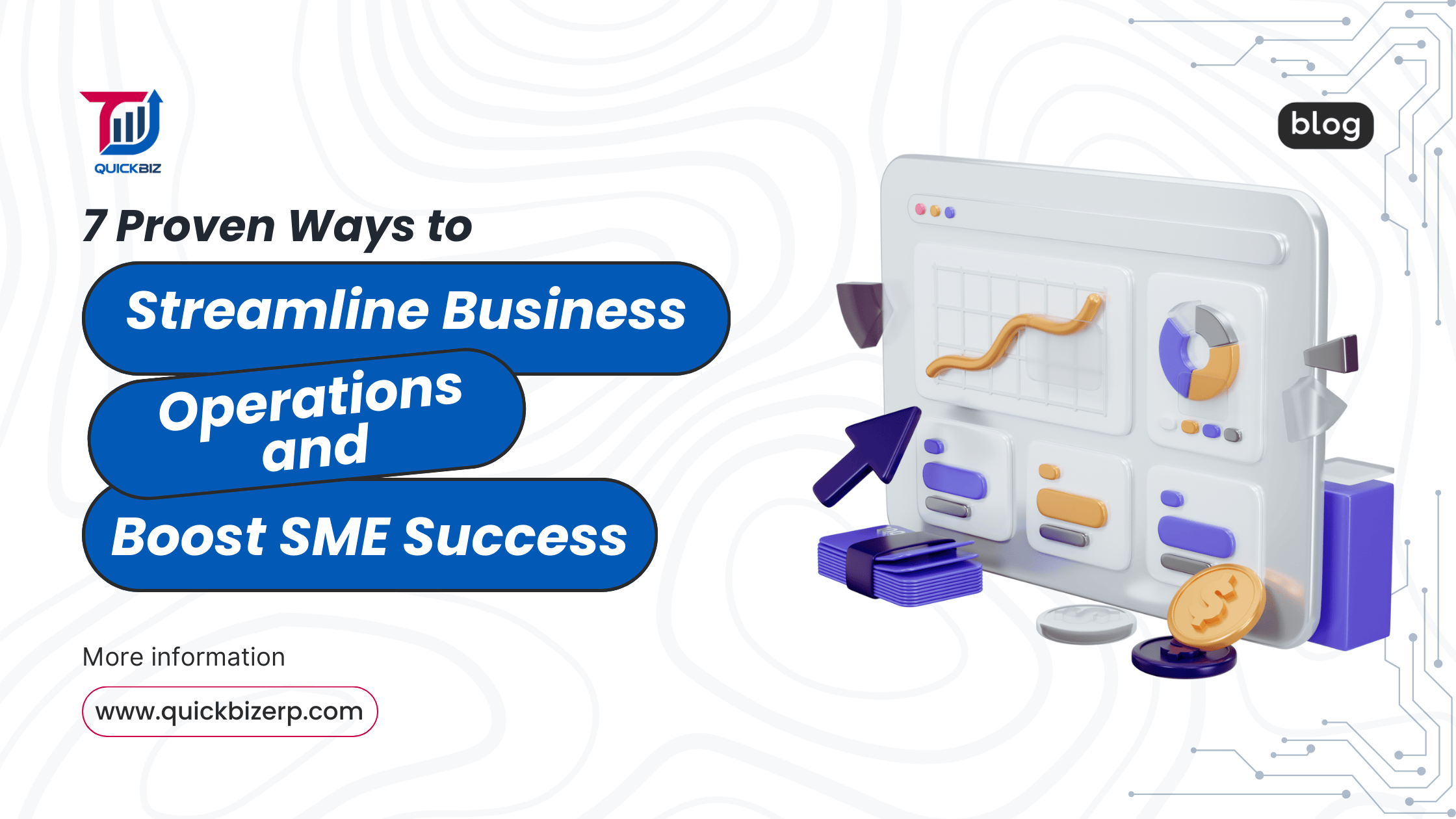7 Proven Ways to Streamline Business Operations and Boost SME Success

Efficient business operations are the backbone of any successful small or medium-sized enterprise (SME). For SMEs, where resources are often limited, optimizing processes can significantly impact profitability and growth. However, many SMEs struggle with common challenges like inefficiencies, outdated systems, and untrained staff, which can hinder their ability to compete in today’s dynamic market. This guide outlines seven actionable strategies to help SMEs streamline their operations, reduce costs, and improve productivity.
1. Automate Repetitive Tasks
Repetitive manual tasks consume valuable time and increase the risk of errors. Automation helps eliminate these inefficiencies, allowing businesses to focus on core activities.
- Why Automate? Automation minimizes manual errors, accelerates workflows, and enhances accuracy.
- Tools for Automation: Implement tools like ERP software, QuickBooks for accounting, or HubSpot for marketing automation to handle routine tasks seamlessly.

2. Leverage ERP Software
Enterprise Resource Planning (ERP) systems are transformative for SMEs, integrating various processes into a unified platform.
- Why ERP Matters: ERP systems provide real-time data, streamline operations, and enhance decision-making.
- Explore QuickBiz ERP: QuickBiz ERP is designed to centralize workflows, offering intuitive dashboards and tools to optimize every aspect of your business.

3. Optimize Workflow Processes
Understanding and refining workflows is critical for maintaining efficiency.
- Identify Bottlenecks: Map out current workflows to spot inefficiencies and repetitive steps.
- Data-Driven Improvements: Use analytics to monitor performance and make iterative improvements that ensure smoother operations.

4. Invest in Employee Training
A well-trained workforce is the backbone of operational efficiency.
- Why Train Your Team? Employees equipped with the right skills can use tools effectively, adapt to process changes, and minimize downtime.
- Best Practices: Regularly schedule training sessions on new tools and industry trends to maintain a competitive edge.

5. Focus on Inventory Management
Effective inventory management ensures you always have the right stock levels, minimizing both stockouts and excess inventory.
- Key Steps: Use demand forecasting and inventory management software to keep track of inventory levels.
- Pro Tip: Consider cloud-based inventory tools to manage stock in real time, no matter where you are.

6. Adopt Cloud Technology
Cloud-based tools offer flexibility and scalability, which are essential for growing SMEs.
- Advantages: Cloud technology reduces IT costs, allows easy collaboration, and ensures secure data storage.
- Why It’s Essential: SMEs can scale up or down based on business needs without worrying about infrastructure constraints.

7. Improve Communication Channels
Clear communication is fundamental to operational success.
- Enhance Team Collaboration: Invest in tools like Slack or Microsoft Teams to facilitate real-time communication among employees.
- Keep Stakeholders Informed: Use platforms that allow seamless sharing of updates, reports, and other critical information.

Conclusion
Streamlining business operations is a continuous process, but implementing these seven strategies can set your SME on the path to success. From automation and ERP solutions to effective communication, each step contributes to building a more efficient and competitive enterprise. Start your journey today by prioritizing the methods most relevant to your business.
Take action now and see the difference streamlined operations can make for your SME!

